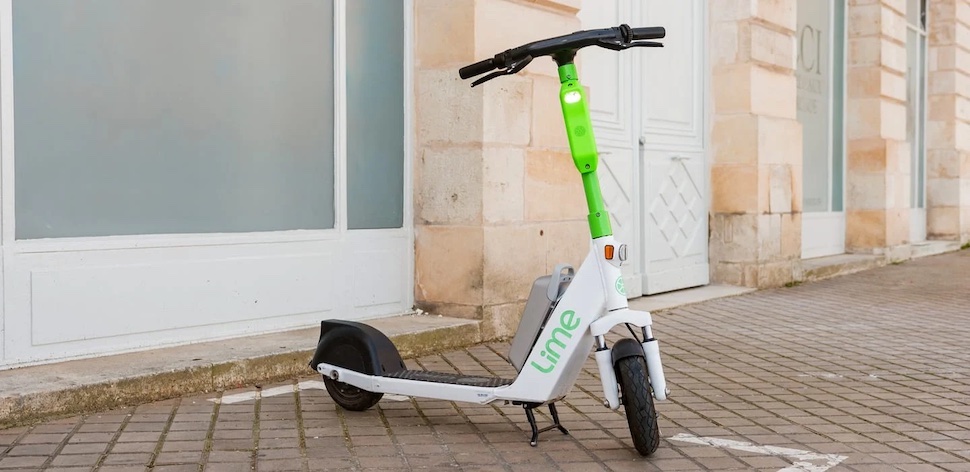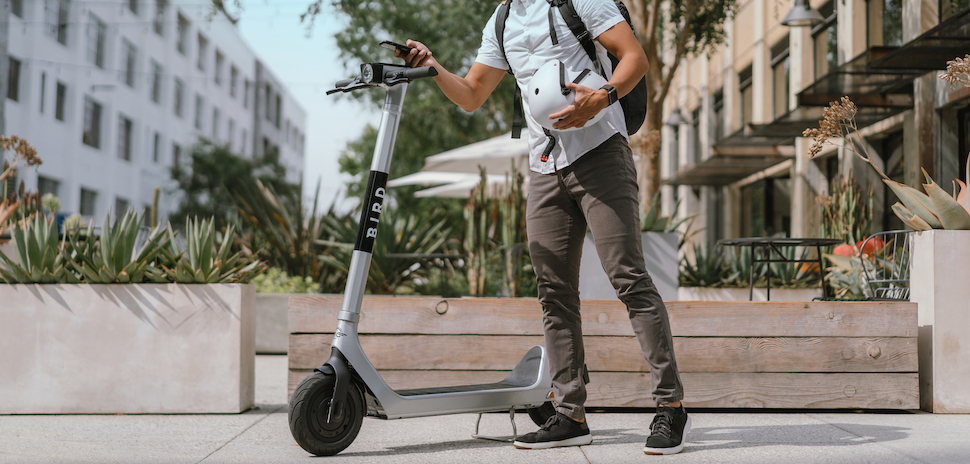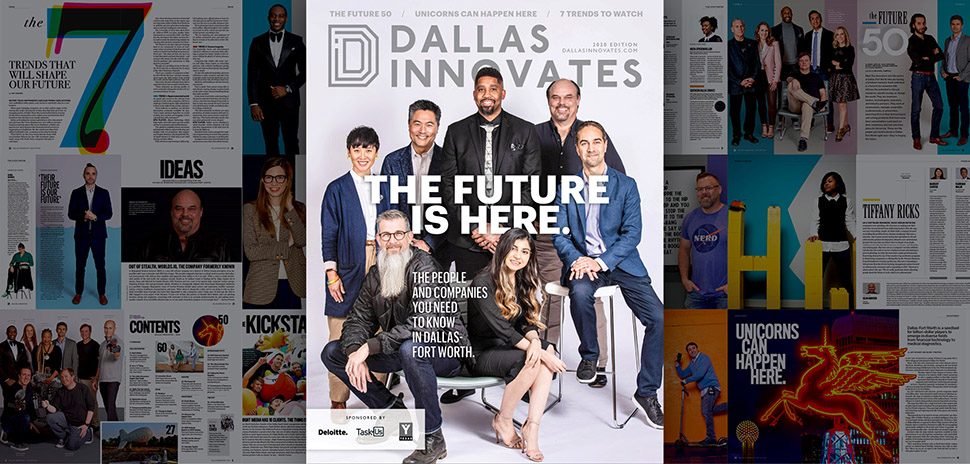Note: This story was updated May 25, 2023, with a statement from Lime.
Like a flock returning to a favorite haunt, shared electric scooters and e-bikes will begin appearing once again on Dallas streets Wednesday, three years after they were banned from the city due to safety and clutter concerns.
After a soft launch that begins Wednesday, Bird will begin fully deploying 500 of its Bird 3 model scooters on May 31 in select Dallas neighborhoods. Two other companies, Lime and Superpedestrian, will also be deploying 500 electric rides each as part of the city’s new micromobility program, with Lime offering around 50 e-bikes and 50 seated e-scooters as part of its mix.
The idea this time: encouraging sustainable mobility while keeping things as safe and orderly as possible.
City promising less chaos and clutter

Lime’s Gen 4 electric scooter offers a wider footboard, lower center of gravity, and swappable battery. [Photo: Lime]
In January, Kathryn Rush, the chief planner for transportation for the city of Dallas, told Fox 4 KDFW that unlike the often unwieldy scooter experiment from 2018 to 2020, the aim this go-round is to provide a more safe, orderly, and equitable shared dockless vehicle program.
“People should see a lot less chaos and a lot less clutter on the streets,” Rush told KDFW.
The eco-friendly rides can be rented by using a smartphone to scan the vehicles’ QR codes or bar codes, then following the instructions.
Rules, regulations—and fines up to $200

Superpedestrian e-scooter [Photo: Superpedestrian]
Some of the complaints the city heard during the last pilot program (scooters being ridden on sidewalks, unsafe riding by partiers and clubgoers late at night, and scooters dumped unceremoniously all over the place) are being dealt with by new rules and regulations approved by the Dallas City Council last June.
For one, e-scooters and e-bikes can only be rented from 5 a.m. until 9 p.m., to encourage sustainable mobility and transportation while discouraging tipsy late-night joy rides.
Riders must be 16 or older. No riding on sidewalks allowed. The use of helmets is not mandated.
To encourage safe riding, a maximum speed limit of 20 MPH is mandated citywide, slowed down to just 10 MPH in select neighborhoods like the busy Deep Ellum restaurant and nightclub neighborhood. Using their ever-increasing technology, companies like Bird, Lime, and Superpedestrian are able to enforce these speed limits remotely—and even shut scooters down if they stray into “no-ride zones” defined by the city.
Riders will learn about the rules on the apps they use to rent the rides. If they break the rules they can be fined up to $200, the city said.
Making ‘an impact on climate and traffic’
“We’re excited to make an impact on climate and traffic in one of the country’s fastest growing cities,” Bird CEO Shane Torchiana said in a statement. “Dallas joins a global community of more than 350 cities who have chosen Bird to offer a safe, efficient, and environmentally friendly way to explore their area, and we wish Dallas residents and visitors alike happy riding.”
Bird says it has “an aligned interest” in reducing Dallas’ carbon footprint while improving connectivity in some of its most grid-locked areas, like Deep Ellum, while helping commuters get from the city’s DART Light Rail System to their downtown Dallas offices.
Recent reports on Dallas’s greenhouse gas inventory numbers show that 35% of emissions come from the city’s transportation sector alone, Bird noted, citing estimates that its fleet of 500 scooters “will replace 225,000-plus car trips over the course of its first full year in Dallas.”
Bird adds that it offers free rides to healthcare workers and emergency personnel. It also offers offers a 50% discount “to low-income riders, Pell grant recipients, select local nonprofit and community organizations, veterans, and senior citizens” under its community pricing program.
‘More organized and tidy’
Kelly Pierce, operations coordinator for Lime in Dallas, said Lime expects the “new and improved e-scooter sharing program to be a huge success for riders and the entire city.”
“We’ve worked with the city to design a program that addresses the concerns of the previous pilot like street clutter and tidiness and we understand the key is getting it right so we’re happy to be patient,” Pierce said in a statement. “This time around, riders, pedestrians, and everyone else can expect a more organized and tidy program that all of Dallas can enjoy and we’re thrilled to be deploying 500 e-scooters today.”
Equal opportunity zones
To promote an equitable riding opportunity, the three companies will be required to place 15% of their scooters in designated “equal opportunity zones,” with no more than 25% allowed in high-activity neighborhoods.
“We’ll be checking in on those metrics daily,” Jessica Scott, bicycle and micromobility manager for the Dallas Department of Transportation, told Community Impact in January.
Numbers could grow beyond 1,500
The city says the three companies aren’t locked permanently into their 500-vehicle limits. Bird, Lime, and Superpedestrian will have “opportunities to incrementally increase that number by meeting benchmarks for ridership and complaint statistics,” the city says.
You can see more details on the new rules—and find out how to rent an e-scooter or e-bike—by going to this city web page.
![]()
Get on the list.
Dallas Innovates, every day.
Sign up to keep your eye on what’s new and next in Dallas-Fort Worth, every day.

































































